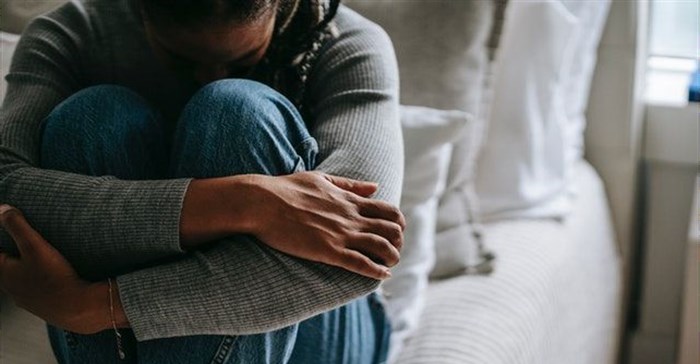
Subscribe & Follow
Advertise your job vacancies
Alarming levels of psychological distress among NPO workers
A recent Mental Health Support Programmes Survey conducted by the South African Depression and Anxiety Group (Sadag) in partnership with Tshikululu Social Investments revealed that workers at non-profit organisations in South Africa are experiencing high levels of psychological distress and are at risk for developing mental illness.

Source: Pexels
The survey assessed the impacts of the Covid-19 pandemic on NPOs and staff psychological well-being, and was conducted amongst approximately 200 NPOs between October 2020 and March 2021.
The findings revealed that two-thirds of NPO professionals exhibited moderate to severe psychological morbidity, and two-thirds also faced an elevated risk of developing a psychiatric disorder. Over one-third of all NPO professionals were found to be exhibiting a high likelihood of having a severe psychiatric disorder by the time the survey was completed.
Since the outbreak of Covid-19 in March 2020, South African society has been put under severe strain. The exacerbation of already difficult psychological and socioeconomic conditions for many communities has seen NPOs quickly mobilise to provide immediate support, essential emergency relief and life-saving resources for thousands of families across the country during these unprecedented conditions.
This has placed massive strain on services offered by NPOs, which has negatively impacted the mental health of those working in these organisations as they work tirelessly to assist the most vulnerable. While NPO workers continue to provide crucial services for those deeply affected by Covid-19, they are still having to maintain their own needs – all within a context of limited resources, sustained exposure to social suffering, and novel pandemic conditions.
Significant risk factors
According to the survey findings, significant risk factors for elevated psychological morbidity included social stress and fewer workplace mental health resources.
The survey also found that men reported greater psychological distress compared to women. This is according to biological anthropologist, Dr Andrew Kim, a researcher at both the Developmental Pathways for Health Research Unit at the Faculty of Health Sciences at the University of the Witwatersrand and Massachusetts General Hospital in Boston, USA.
Kim, together with Tshikululu and SADAG, designed, implemented and analysed this survey.
“This is a particularly interesting finding because epidemiologically, women tend to be at a greater risk of developing psychiatric diseases or higher levels of psychiatric morbidity, but here we actually see the opposite, that men are exhibiting worse mental health in this sample," he says.
Kim adds, “NPO workers faced considerable stress at work and home and consequently, and exhibited a range of symptoms of psychological distress, including insomnia, helplessness, excessive worrying, a disconnect from their work and family, cynicism, and burnout. The overall incidence of psychological distress was particularly alarming in this sample.”
Need for psychological support and services
Nearly half of NPOs did offer some form of psychosocial support to their staff, yet many NPO workers did not seek professional psychological assistance.
Reflecting on the findings of this survey, clinical psychologist Dr Garret Barnwell says that he doesn’t think there is anyone who hasn’t been affected by some form of loss and grief during this global pandemic.
“What this research shows is that there is a tremendous need. We know that mental health care services are lifesaving, so for people who are struggling, getting access early is really important,” says Barnwell, who worked in the NPO sector for over 10 years, including for Doctors without Borders.
“The finding about men is really concerning. We know men present late to services sometimes, we tend to bottle things up. We need to think a bit differently about masculinity and how to encourage one another to access care and be able to create reflexive and caring spaces for one another in the workplace,” he says.
Getting help
Recommendations suggested as a result of the survey finding include the need to provide immediate mental health services to staff through the existing NPO resources and encouraging staff to make use of medical aid benefits or local clinics, or reaching out to available lay psychosocial resources such as church groups and support group networks.
Managing the expectations and clarifying roles and responsibilities of staff and implementing simple structured touchpoints with staff can identify challenges and help address issues as and when they arise.
Paying extra attention to schedules, time off, and workload can also help identify any staff that may be overloaded. Collaboration and communication with other NPOs, other civil society organisations, and other stakeholder groups can also help to maximise resource allocation, share solutions, and problem solve.
“Even with just taking that one step towards seeking help, calling the call centre, speaking to someone about your problems, talking to someone in your community, there are different forms of mental health resources, and this is the first step and a very important step to break that cycle, a small step that can really go a long way,” says Dr Wooyoung Kim.
Commenting on the outcomes of the survey, Petri Greef from Sadag reminds those working in NPOs that it is important to have boundaries for yourself, within your family and within your work, and to look after yourself. “We often say at SADAG that you cannot pour from an empty cup, so you have to look after yourself in order to look after others,” she says.
NPOwer helpline
Recognising the mounting pressure that NPOs were experiencing during the pandemic, Sadag and Tshikululu Social Investments launched an NPO Mental Health Support Programme and a 24-hour toll-free helpline in October called called NPOwer. The service offers mental health care and support to all NPOs, NPO leaders, staff and volunteers. To date, the helpline has handled over 4,800 calls.
The toll-free NPOwer helpline is open 24 hours a day, 7 days a week, 365 days a year with counselling available in all 11 official languages. Call 0800 515 515 or send a dedicated SMS to 43010. You can also email info@npowersa.org or go to www.npowersa.org/ for more information.
As suggested from the findings, NPOwer will be hosting a webinar on 22 July 2021 on secondary trauma and will also be launching support groups in the near future.
Related
5 tips to keeping workplace morale high these holidays 28 Nov 2024 Outstanding achievement in Measurement and Control earns Ruth-Anne Wright 2024 Schneider Electric Student Award 23 Sep 2024 Teen suicide in South Africa: Sadag's call for intervention 9 Sep 2024 Sappi research chair at Wits marks a milestone year of climate action 7 Jun 2024 Sanef partners with SADAG to help journalists cope with trauma 30 May 2024 Financial wellbeing: Key to better mental health 23 May 2024











